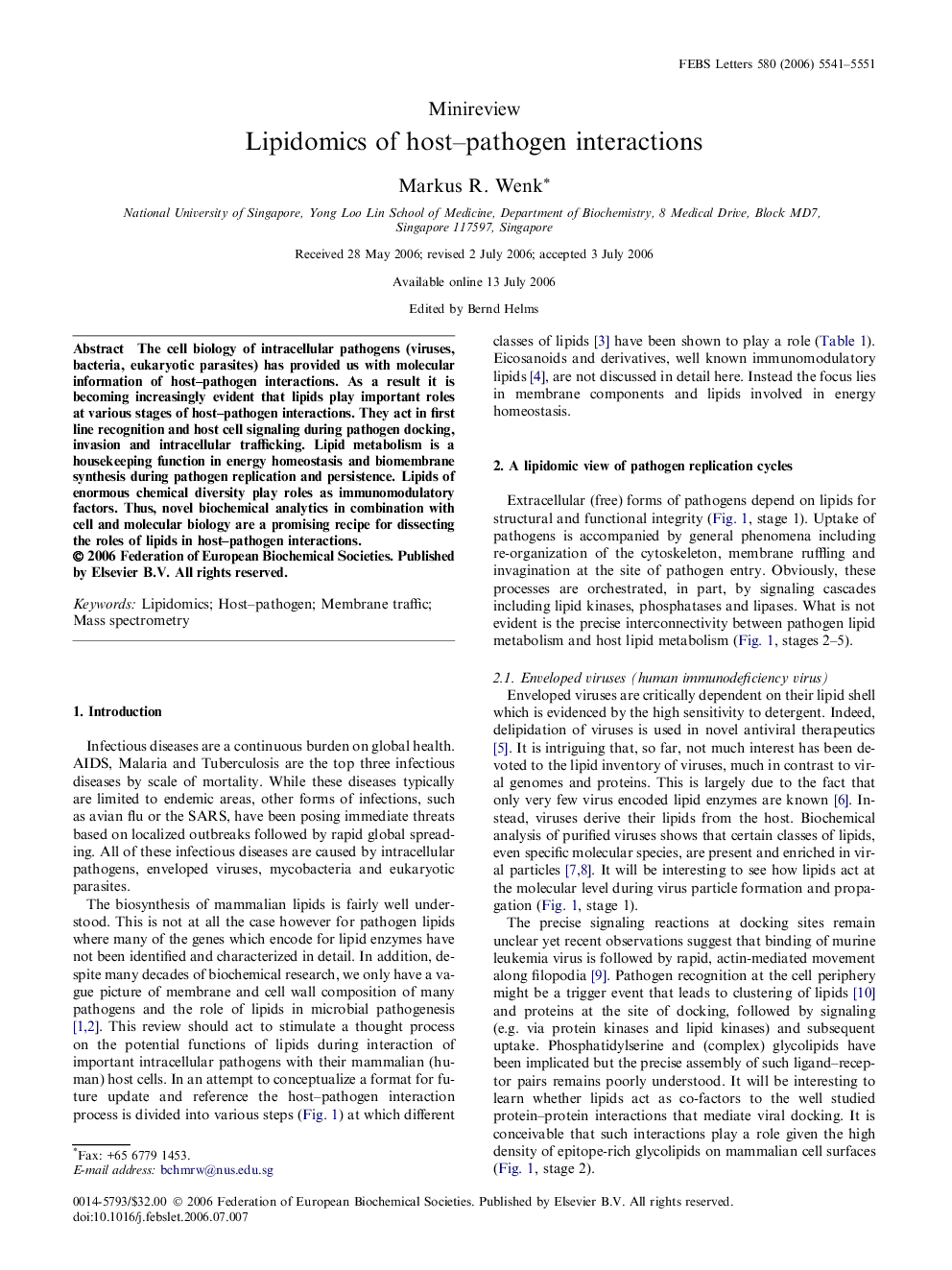| Article ID | Journal | Published Year | Pages | File Type |
|---|---|---|---|---|
| 2050416 | FEBS Letters | 2006 | 11 Pages |
The cell biology of intracellular pathogens (viruses, bacteria, eukaryotic parasites) has provided us with molecular information of host–pathogen interactions. As a result it is becoming increasingly evident that lipids play important roles at various stages of host–pathogen interactions. They act in first line recognition and host cell signaling during pathogen docking, invasion and intracellular trafficking. Lipid metabolism is a housekeeping function in energy homeostasis and biomembrane synthesis during pathogen replication and persistence. Lipids of enormous chemical diversity play roles as immunomodulatory factors. Thus, novel biochemical analytics in combination with cell and molecular biology are a promising recipe for dissecting the roles of lipids in host–pathogen interactions.
